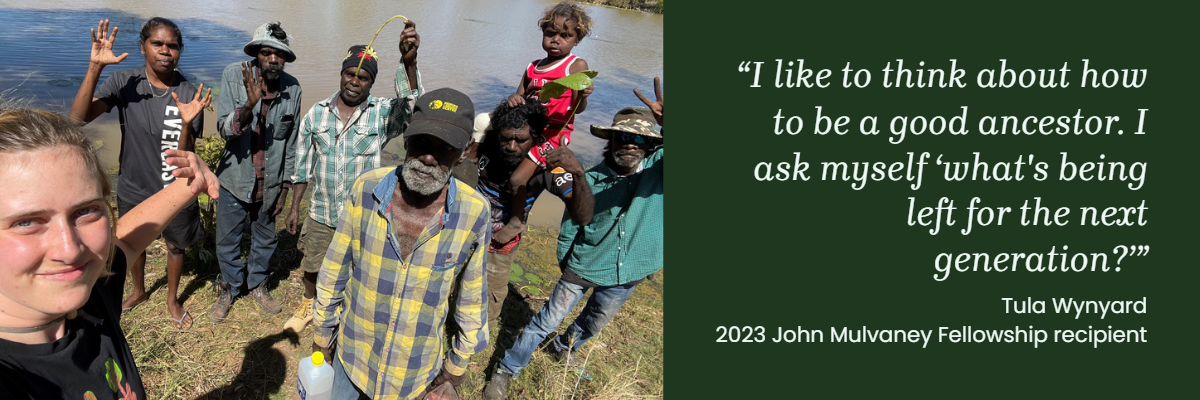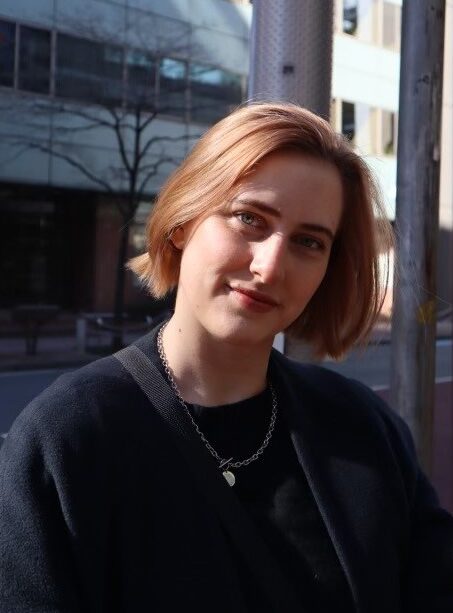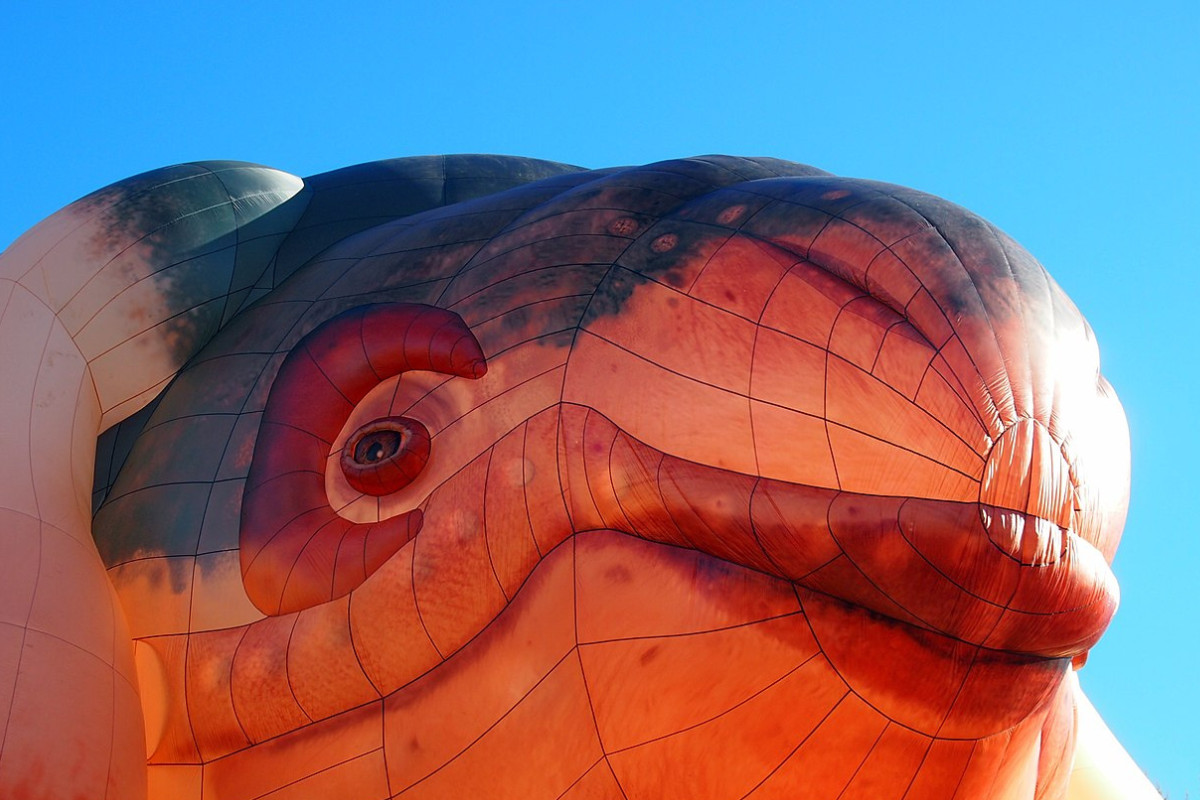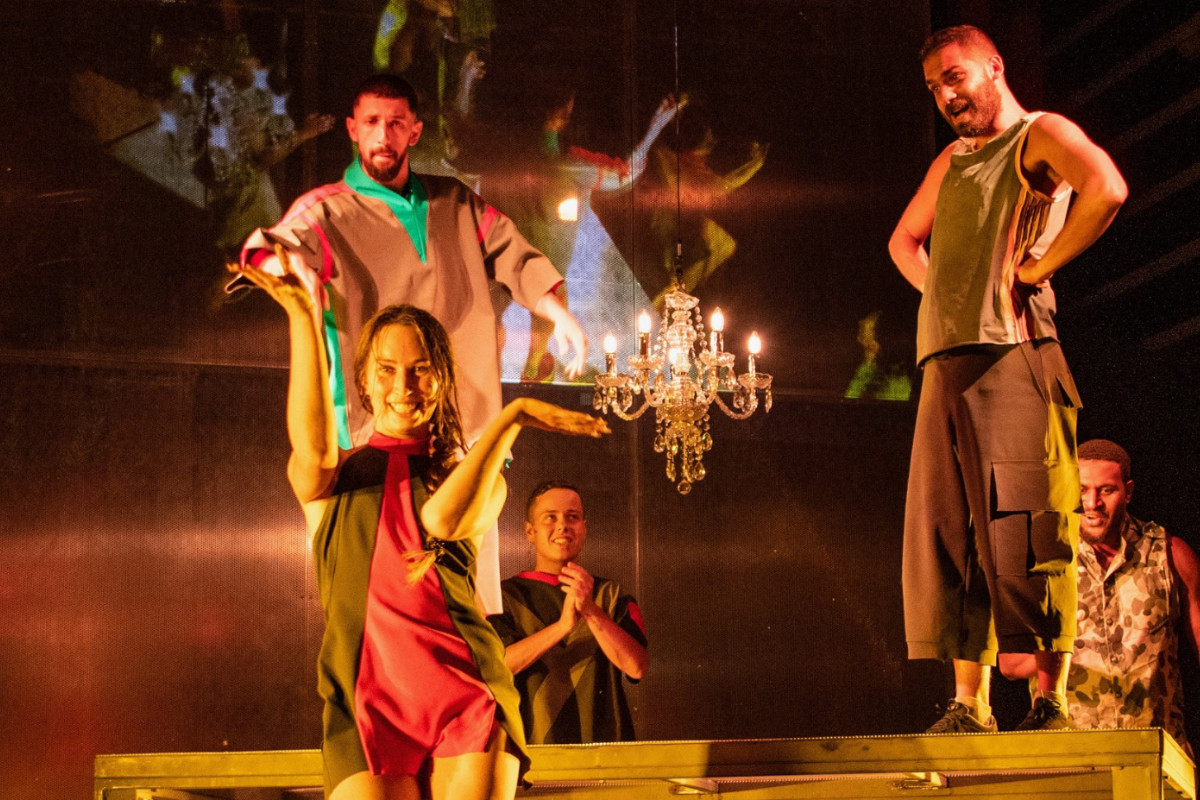
“Ngaya giyara Tula. Dhanayi dhalang Dharug, Burramadagal diyin ngaya,” introduces Tula Wynyard in Dharug. “My name is Tula. My ancestral language is Dharug and I’m a Burramadagal woman from the Sydney region.”
“Ŋarraya marŋgithirri mathagu,” she continues in Ritharrŋu-Wägilak. “I’m learning [Ritharrŋu and Wägilak] language.”
“Growing up I was always learning languages,” Tula explains.
“I started learning French at school and then went on to Spanish at university, then I lived and worked in Japan where I learned some Japanese.”
Despite her talent for acquiring languages, she realised she hadn’t been learning the language of her ancestors.
“As an adult, I looked at my heritage and thought, why don’t I speak this language?”
But when Tula tried to study the Dharug language through university, she discovered there wasn’t enough of the critical documentation needed – in the form of recordings and grammatical insight.
When she started a PhD in linguistics at the University of Melbourne she heard that Ritharrŋu and Wägilak Elders in Arnhem Land were keen to work with a linguist to document their language, and she jumped at the chance to help.
It’s fitting that Tula accepted the 2023 Australian Academy of the Humanities’ John Mulvaney Fellowship while on her first fieldwork trip in the heart of Arnhem Land.
The race to protect Indigenous languages
Tula’s PhD is one project helping to counter a growing problem: a fast decline of Indigenous languages. Alarmingly, Australia is at the top of the list, with one of the world’s fastest rates of language loss.
Tula’s no stranger to this loss. The Dharug language of her ancestors was one of the first to be hit by colonisation.
“All over the country every mob is facing different levels of language loss. We really need to work together and have frameworks of how to teach language to kids or how to teach language through song, to keep those languages going strong.”
Inspired by the many organisations who have worked to protect languages, Tula’s specialisation in linguistics means she can help take preservation one step further.
“For example, a linguist’s grammar is inaccessible to a lot of people,” Tula explains.
“But if you’re making teaching and learning materials, it can be invaluable. I’m pulling apart the structures of the language and comparing it to other languages and supplementing it with recordings of important stories from Elders.”
Language, culture & Country are entwined
Stories also hold cultural significance and connection to Country. Tula explains:
“Language comes out of Country so when you’re on a specific Country, that Country likes to hear its own language.
“The connection between language and country is really important, so is hearing how the language is used in the cultural context. It’s also crucial for the speakers that I work with to be comfortable and in an environment that supports them.”
This means a significant portion of Tula’s work needs to take place on Country, which isn’t as easy as you might think.
“Fieldwork is hugely expensive, especially in remote Australia. Most people who haven’t been to a remote community will be shocked by how expensive it is for transport, fuel and food,” Tula explains.
The Fellowship will provide much-needed funding to help Tula conduct more fieldwork.
“This funding allows us to do language work in ways that are really important for the cultural connection. For example, getting out to the river means you’re in a situation that’s rich with language: names of fish, plants, animals, landforms. You might hear stories about the area, big cultural stories, or stories about peoples’ lives.”
You can’t get the same experience over Zoom.
Honoring Elders
The timing of the announcement of Tula’s Fellowship, during the 2023 National NAIDOC Week – themed: For Our Elders – is particularly meaningful given her commitment to honoring those who have come before her and the role they play in passing on culture.
“One of the things that comes up when you talk to Elders about language is that they want the young people to learn and to become knowledgeable about the language and culture because language is one of the most important things carrying on these traditions and cultural keystones.”
“I like to think about how to be a good ancestor. I ask myself ‘What’s being left for the next generation?’”
Contributing to a growing humanities discipline
Tula’s work, which is still in its early days, is also contributing to a growing discipline of Indigenous Studies.
“It’s tricky to balance humanities study with actual humans, just because the university system in so many ways is quite distinct with its own goals, needs and hierarchies,” reflects Tula.
“Working with mob is quite different. It’s very relational and so trying to work between both is something that linguistics as a discipline is still developing. I think in particular Indigenous scholars are pushing this forward, and we’re getting closer to having a balance of community engagement, consultation and outcomes.”
As one of the scholars bringing universities closer to community, Tula’s grateful for the opportunity to focus on this project:
“It’s special to be able to study the same topic for four years and have the funding, supervision, support and resources of the university environment.
“Hopefully it’s getting closer to a stage where the university and community goals can be aligned.”
More about Tula

Tula is a PhD candidate in linguistics at the University of Melbourne, with supervisory guidance of Professor Rachel Nordlinger and Associate Professor Brett Baker. She is working on the documentation of Ritharrŋgu-Wägilak Indigenous languages spoken mostly in Ngukurr, Numbulwar and Gapuwiyak, Northern Territory. In the course of her research, she works collaboratively with the Ngukurr Language Centre which is a not-for-profit organisation that supports the traditional languages of the region.
She is inspired by other Indigenous language projects, including Angelina Joshua’s project for Marra My Grandmother’s Lingo, Clint Bracknell and his team’s work dubbing Bruce Lee’s Fist of Fury with the Noongar language, and Aunty Corina Norman and Aunty Jasmine Seymour’s Bayala project for Dharug.



